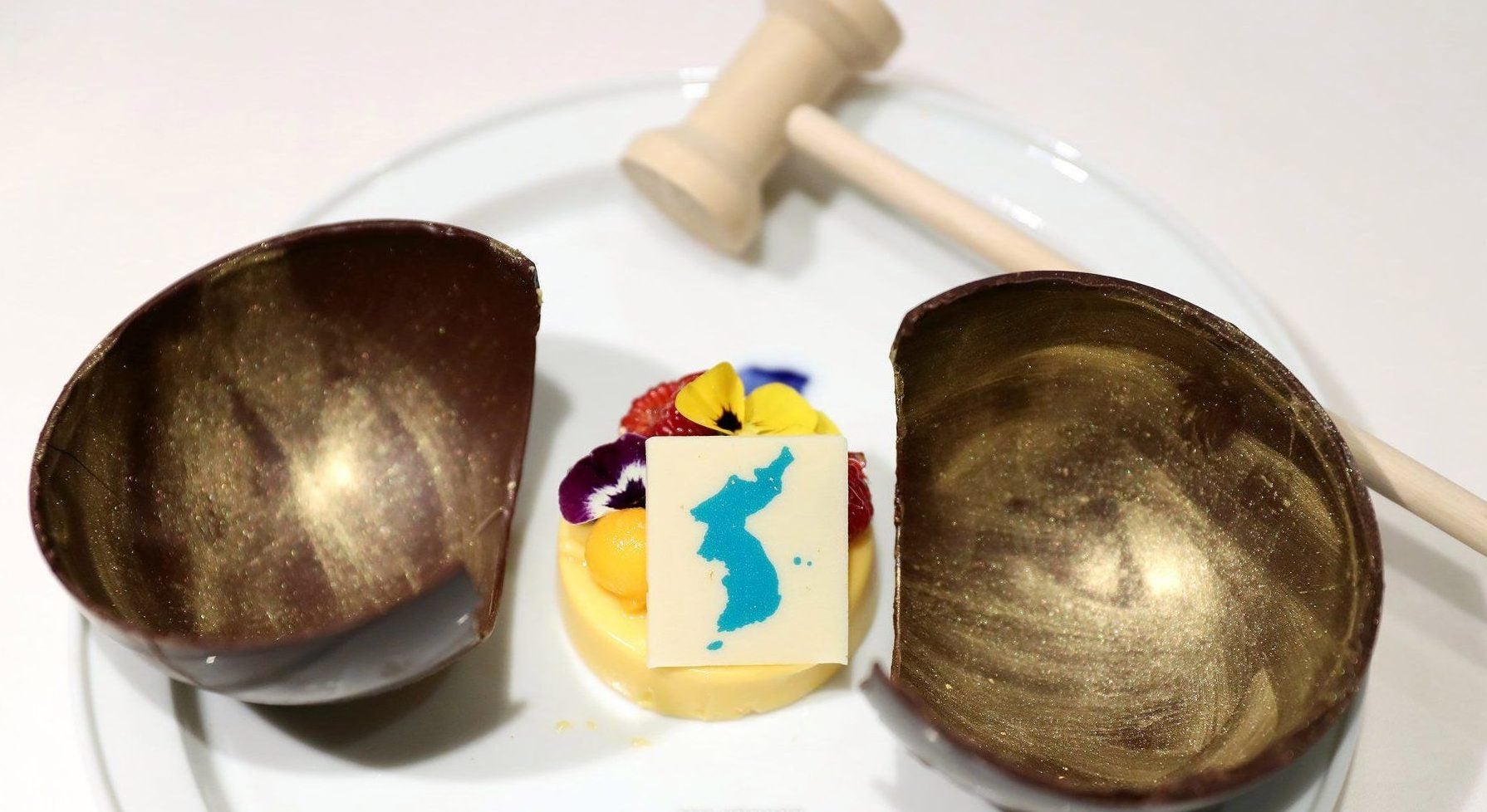Here’s all the meaningful things Kim Jong-un will eat when he meets with South Korea’s president
When North Korean leader Kim Jong-un meets with his South Korean counterpart this week to talk peace on the peninsula, he’ll also be getting a history lesson in inter-Korean relations as told through gastronomy.


When North Korean leader Kim Jong-un meets with his South Korean counterpart this week to talk peace on the peninsula, he’ll also be getting a history lesson in inter-Korean relations as told through gastronomy.
As the leaders prepare to meet on April 27 at the Demilitarized Zone (DMZ), Seoul’s presidential Blue House today (April 24) released the menu for the post-summit dinner. The ingredients used represent meaning to those attending the summit, and also honor those who have worked to reunify the Koreas in some way, according to the Blue House. Food on the menu will include:
- Rösti, the Swiss potato fritter dish, in a nod to North Korean leader Kim Jong-un’s time spent attending school in Switzerland
- Dumplings containing sea cucumber from the hometown of former president Kim Dae-jung in South Jeolla province—Kim, a Nobel Peace Prize winner, was the architect behind the “Sunshine Policy” toward North Korea and led a summit between the two countries in 2000
- Rice from the hometown of former president Roh Moo-hyun, who met with North Korean leader Kim Jong-il in 2007
- Beef from the same ranch from which a wealthy South Korean businessman delivered 500 head of cattle to North Korea in 1998 amid a food shortage in the country
- Cold buckwheat noodles, or naengmyeon, made fresh on the day by a Pyongyang chef just north of the border and then delivered to the meeting venue in the DMZ
- Fish from the seaside city of Busan, where president Moon Jae-in spent his childhood
- A mango mousse for dessert, whose bright colors are meant to evoke the arrival of spring after winter, mirroring the breakthrough in inter-Korean relations, with the blue silhouette of the Korean peninsula overlaid on it.
When North and South Korean officials met for a banquet ahead of the Winter Olympics in Pyeongchang in February, South Korea served up a blue dessert made in the shape of the Korean peninsula complete with a piece of barbed wire made out of chocolate, overlaid by a white chocolate glob to suggest the melting down of the wire.
South Korea is skilled at sending messages through culinary creativity. At a banquet with US president Donald Trump last year, Seoul sent a decidedly frosty message to Japan through its menu, serving up a prawn from the disputed islets claimed by Korea as Dokdo and Japan as Takeshima. Also present at the dinner was a woman who was forced to work as a sex slave for Japanese troops during World War II.
Japan launched an official protest to Seoul over the Trump banquet, and is now objecting to the mango mousse that will feature at the upcoming inter-Korea summit for its sugary reference to the disputed isles.